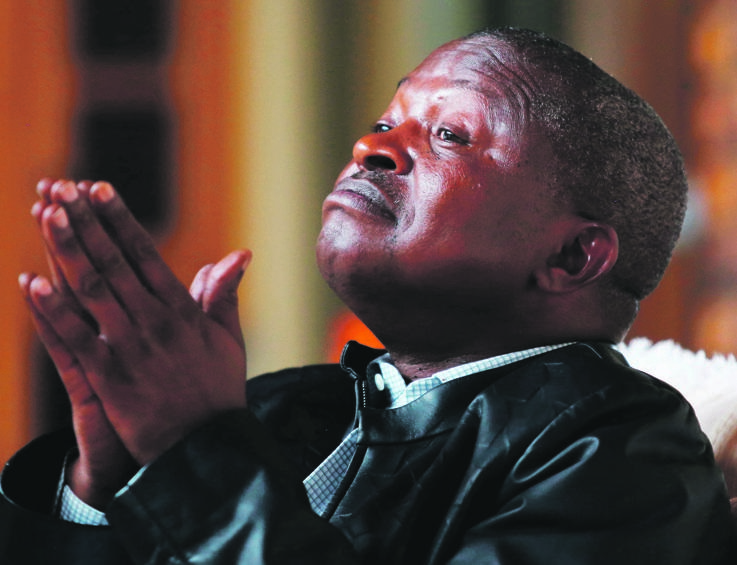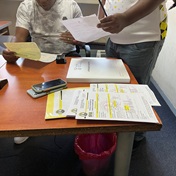
The deputy president takes his job seriously, but his low profile and his rift from the Dlamini-Zuma camp at Nasrec last year may cost him dearly
Among the big political questions to be asked in the new year is whether President Cyril Ramaphosa will retain his deputy, David Mabuza, after the general elections.
Although the ANC branches have some latitude in influencing Ramaphosa’s decision, he is protected by the presidential prerogative to appoint anyone he prefers.
Ramaphosa would be keenly aware that the last time an ANC president sidelined his deputy, it ended badly.
Former president Thabo Mbeki lost his grip on the party after he fired his then deputy, former president Jacob Zuma, costing him both offices – in Luthuli House and at the Union Buildings.
Mabuza prides himself on being an organiser, and an exit from Pretoria would give him ample time to consolidate a strong base ahead of the party’s 2022 conference.
He does not do morning jogs like Ramaphosa, so he is relatively anonymous in the media space.
But those in his corner say he prefers to go house to house, speak to people, take notes and propose solutions.
They praise him for his “common touch” — a tricky word that easily reminds one of “Ubaba listens”, Zuma’s former campaign ticket, and how catastrophically it ended for all of us.
It may be true that Mabuza, 58, is humble and down to earth, based on his upbringing as “a village boy”.
But strategically, he would be doing himself a disfavour if he reminded the public of how Zuma was sweet-talked into their ears before he put the country through tumultuous times.
The former Mpumalanga premier has carefully managed his relationship with Ramaphosa, including retaining the staff that Ramaphosa had hired in the office when he was still Zuma’s deputy.
He also takes the government tasks that Ramaphosa gives him very seriously, which may count in his favour when the moment comes. These include leading programmes on social cohesion, HIV/Aids campaigns and the land issue.
In his diary, City Press hears, these items come first – and “that explains why he has not been featuring a lot in ANC political events”.
In any case, “he would prefer that Luthuli House influences his political diary by deploying him”, says a source, instead of going on a frolic of his own.
But opponents attribute his absence in the ANC space to a growing paranoia that he may not be safe after a food-poisoning incident — a subject he avoids discussing as it appears to traumatise him.
They also point to the fact that his office diary is meticulously combed to avoid any possible threats – like the chaos that erupted in August at the funeral of the late struggle icon, Zondeni Sobukwe, in the Eastern Cape, where he had to be whisked away by security because of a rowdy crowd.
His camp disagrees. Using his aborted Eastern Cape appearance as an example, they say it had not been subjected to the rigorous checks usually conducted before his official visits because his attendance was required at the last minute, after Ramaphosa pulled out.
Mabuza avoids pitching at poorly organised events, which is why every invitation is thoroughly verified before he confirms his attendance.
Many South Africans say Mabuza “saved the nation” when he united his Mpumalanga voting bloc behind Ramaphosa at the Nasrec conference last December.
The alternative would have been a Zuma-sponsored Nkosazana Dlamini-Zuma presidency.
But Mabuza made powerful enemies in the process, and it has come back to bite him as ANC branches submit candidate nominations for the election lists.
His reception in eThekwini in KwaZulu-Natal, at the ANC’s upcoming January 8 rally, will be eagerly watched, given the whispers that the province is a “no-go area” for him.
A campaign is also under way to have him nominated very low on the ANC election lists in order to portray him as unpopular.
Others suggest that Mabuza has also become jittery about the list process, saying he has even taken time out of his official diary to go and lock down support in his home province of Mpumalanga to avoid humiliation.
Those itching to step into his shoes have also been watching closely and working hard to position themselves favourably in Ramaphosa’s eyes.
Mabuza’s belief is that he has been consistent and committed to the unity project, so it is not true that he sold out the Dlamini-Zuma lobby.
A story is told that he once came uninvited to a caucus meeting of the Dlamini-Zuma lobby somewhere near Nasrec while the speaker was busy talking ill about him, creating an awkward moment.
This story is used as an example that the Dlamini-Zuma camp also knew that he was not on their side.
A Zuma aide says the rift between Mabuza and the Dlamini-Zuma camp started when Dlamini-Zuma refused to have him as her deputy candidate for Nasrec.
The then members of KwaZulu-Natal’s ANC provincial executive committee and their Mpumalanga counterparts failed to resolve the standoff.
City Press has also learnt that, as part of his unity campaign, Mabuza has been quietly lobbying former North West premier Supra Mahumapelo to abandon his fight with Luthuli House over the disbandment of his provincial executive.
He is doing this, according to sources, to once again “save Ramaphosa”, amid fears that the Nasrec leadership is being undermined.
The intervention is cited as an example of how Mabuza silently works the ground in rebuilding the ANC, without courting media attention.
In a recent interview, ANC secretary-general Ace Magashule said that there had been no formal deployment for Mabuza to meet Mahumapelo.
“But if there was or if there is, I think engaging with him is the right thing to do. That is how leadership is done; it is the right thing to be done.”
On the downside, the relationship between Ramaphosa and Mabuza’s office has not been good on some occasions.
For example, when a newspaper called Ramaphosa’s office to ask about Mabuza’s recent “sick leave”, the reporter was referred to Mabuza’s office, when, in fact, the presidency should have been comfortable about clearing issues to do with the deputy’s office too.
The apparent friction has been attributed to an observation that Ramaphosa had staffed his office with ambitious people who would naturally be wary of Mabuza’s political ambitions post the Ramaphosa era.
As deputy president, Mabuza is in a prime position to succeed Ramaphosa if the ANC branches preferred him.
Mabuza may have even fancied taking over the presidency sooner, when Ramaphosa mysteriously backtracked on the Bosasa funding scandal last month, after having confidently assured Parliament that all was above board.
But it is clear that the opposition would rather spare Ramaphosa to avoid leaving the door wide open for Mabuza.
If anything, Mabuza needs to work on the low level of trust that he enjoys in the public eye. His strategy to remain a closed book exacerbates the problem.
In August, he uncharacteristically responded to a New York Times article that painted him as a shady character who would not hesitate to kill to push through his political ambitions.
But that train has long left the station because the narrative became entrenched in the public mind many moons ago.
On its preferred election list, the Ramaphosa lobby group has placed Mabuza as its number two.
But “DD” would know well that he has never been Ramaphosa’s preferred deputy – and that if he gets snubbed, it should not come as a surprise.




 Publications
Publications
 Partners
Partners








